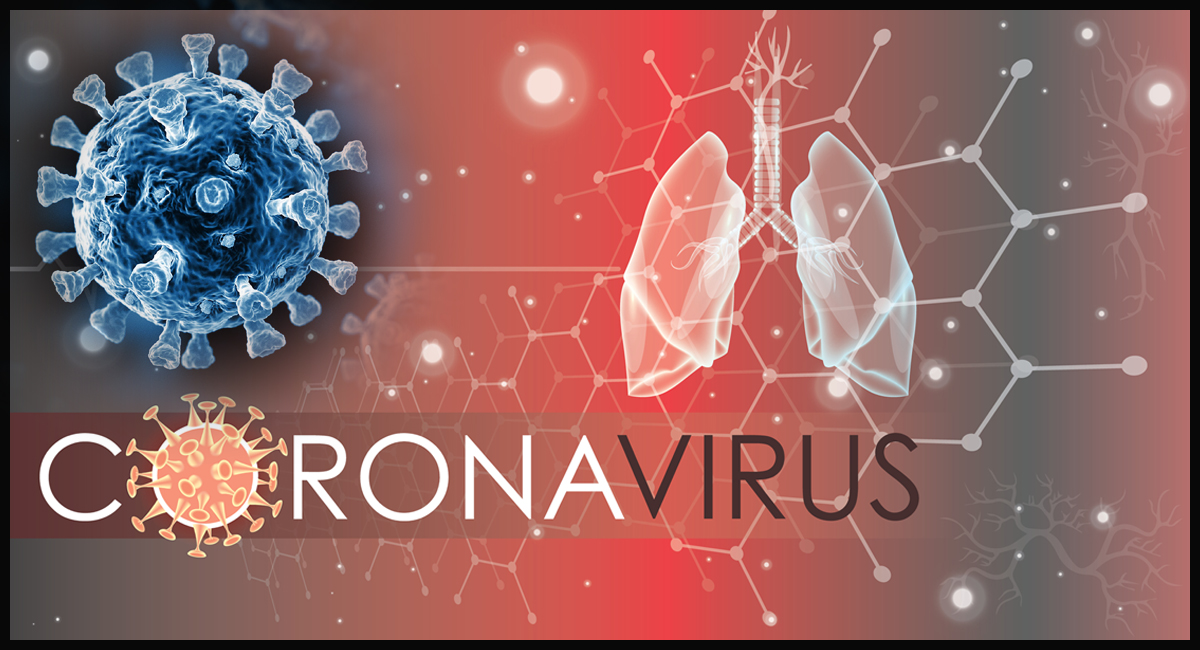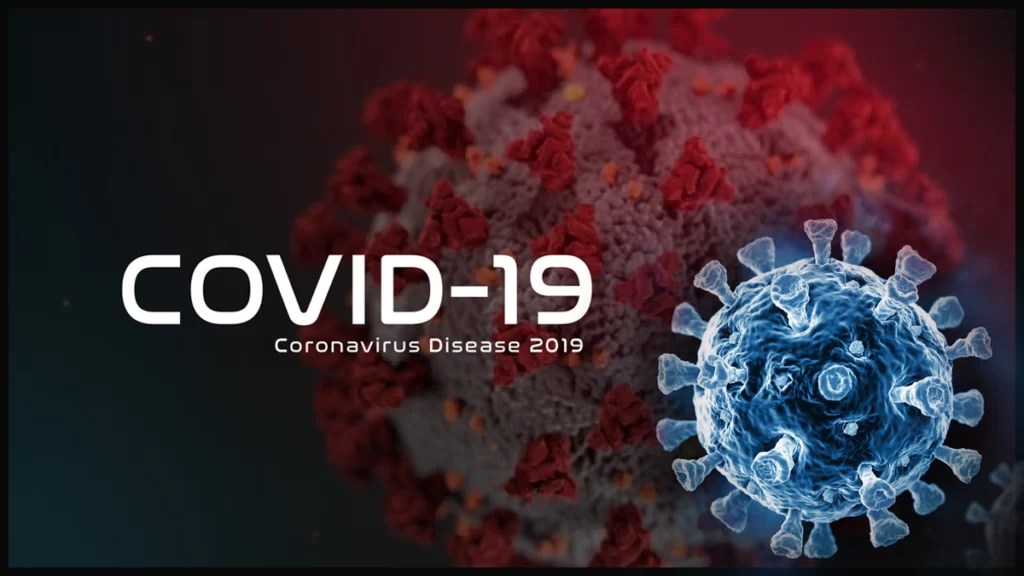
The main source of coronavirus disease is
COVID-19: The main source of coronavirus disease (COVID-19) is the SARS-CoV-2 virus. This virus is primarily transmitted through respiratory droplets produced when an infected person speaks, coughs, or sneezes. Additionally, it can spread if someone touches their mouth, nose, or eyes after coming into contact with a contaminated surface or object. It is important to practice good respiratory hygiene and frequent hand hygiene to help prevent the spread of COVID-19. It is also important to follow guidelines from health authorities, such as wearing a mask in public and maintaining physical distance from others, to help prevent the spread of the virus.

here is more information about the SARS-CoV-2 virus and COVID-19:
The SARS-CoV-2 virus is a member of the family of viruses called coronaviruses. In December 2019, Wuhan, China, made the initial discovery of it.
The SARS-CoV-2 virus is the source of the illness, COVID-19. It is a respiratory illness that can range in severity from mild to severe and, in some cases, can be life-threatening. The most common symptoms of COVID-19 include fever, cough, and difficulty breathing.
How the SARS-CoV-2 virus spreads
It is not fully understood how the SARS-CoV-2 virus spreads. But it is thought to be primarily transmitted through respiratory droplets produced when an infected person speaks, coughs, or sneezes. It is also possible for a person to contract the virus by touching a surface. Or touching an object contaminated with the virus and then touching their mouth, nose, or eyes.
COVID-19 can affect people of all ages, but some groups. Such as older adults and those with underlying health conditions, are at higher risk of severe illness or complications.
There is currently no specific treatment for COVID-19. But there are a number of vaccines that have been developed to help prevent infection with the virus. It is important to follow guidelines from health authorities and take steps to protect yourself and others. Such as wearing a mask, practicing good hand hygiene, and maintaining at least 2 feet of physical distance from others. To help prevent the spread of COVID-19.
here are some additional points about COVID-19:
COVID-19 can lead to a range of symptoms, including fever, cough, and difficulty breathing. Some people may also experience body aches, fatigue, and loss of taste or smell. In severe cases, COVID-19 can cause pneumonia, which can lead to hospitalization and even death.
The severity of COVID-19 can vary widely from person to person. Some people may have no symptoms or only mild symptoms, while others may become severely ill.
There is currently no specific treatment for COVID-19
There is currently no specific treatment for COVID-19. Treatment is typically supportive, and may include medications to reduce fever and help with symptoms, as well as oxygen therapy for those who are severely ill.
It is not fully understood how the SARS-CoV-2 virus spreads, but it is thought to be primarily transmitted through respiratory droplets produced when an infected person speaks, coughs, or sneezes. It is also possible for a person to contract the virus by touching a surface or object contaminated with the virus and then touching their mouth, nose, or eyes.
There are a number of measures that can be taken to help prevent the spread of COVID-19, including wearing a mask, practicing good hand hygiene, and maintaining physical distance from others. It is also important to follow guidelines from health authorities, such as quarantine and isolation measures, to help slow the spread of the virus.
Here are some additional points about COVID-19:
COVID-19 can have a range of impacts on people’s mental health. The stress of the pandemic and the changes it has brought about, such as social isolation and financial insecurity, can take a toll on people’s mental health. It is important to take care of your mental health during the pandemic by staying connected with others, finding healthy ways to cope with stress, and seeking help if you are struggling.
The global economy has been severely affected by COVID-19. Many businesses have had to close or operate at reduced capacity due to restrictions put in place to help slow the spread of the virus. This has led to widespread job losses and financial insecurity for many people. Governments around the world have implemented various measures, such as financial assistance programs, to help mitigate the economic impacts of the pandemic.
It is important to stay informed about COVID-19
It is important to stay informed about COVID-19 and to follow guidelines from health authorities. This can help protect you and those around you from the virus. Stay up to date on the latest information by following reputable sources, such as the World Health Organization (WHO) and the Centers for Disease Control and Prevention (CDC).
COVID-19 has highlighted the importance of preparedness for public health emergencies. It is important for individuals, communities. And governments should be prepared for future public health emergencies by having supplies and plans in place. And as well as by investing in public health infrastructure.
Here are some additional points about COVID19:
COVID-19 has highlighted the need for global collaboration and cooperation in addressing public health crises. The pandemic has affected countries on every continent, and addressing it requires a coordinated global response. This includes sharing information and resources, such as personal protective equipment and vaccines, to help countries around the world respond to the pandemic.
COVID-19 has also highlighted the importance of scientific research and the role it plays in understanding and responding to public health emergencies. Scientists around the world have been working tirelessly to understand the virus and develop vaccines and treatments. This research has been critical in the global response to the pandemic.
There are a number of vaccines that have been developed to help prevent COVID-19
There are a number of vaccines that have been developed to help prevent COVID-19. These vaccines have undergone rigorous testing to ensure their safety and effectiveness. It is very important to get vaccinated whenever a vaccine becomes available to you. Vaccines are an important tool in helping to control the spread of the virus and eventually bring an end to the pandemic.
It is important to continue following guidelines from health authorities and to take steps to protect yourself and others from COVID-19. This includes wearing a mask, practicing good hand hygiene, and maintaining physical distance from others. It is also important to stay home if you are feeling sick or have been in close contact with someone who is sick. By following these guidelines, we can help slow the spread of the virus and protect ourselves and those around us.
The effects of the corona virus disease
The effects of the coronavirus disease (COVID-19) on the human body can range from mild to severe, and in some cases, they can be life-threatening. The most common symptoms of COVID-19 include fever, cough, and difficulty breathing. Some people may also experience body aches, fatigue, and loss of taste or smell. In severe cases, COVID-19 can lead to pneumonia, which can cause severe respiratory distress and may require hospitalization. In severe cases, COVID-19 can also cause sepsis. A potentially life-threatening condition that occurs when the body’s response to infection causes inflammation throughout the body. COVID-19 can also have a range of impacts on mental health. And the stress of the pandemic and the changes it has brought about can take a toll on people’s mental health.
The effects of the coronavirus disease (COVID-19) on the body after recovery can vary. Some people may experience no long-term effects after recovering from COVID-19. While others may have ongoing symptoms or develop long-term health problems.
People experience fatigue and weakness for a period of time after recovery
It is common for people who have recovered from COVID-19 to experience fatigue and weakness for a period of time after recovery. Some people may also experience difficulty breathing, coughing, or other respiratory symptoms, as well as body aches and pains. These symptoms may persist for several weeks or longer after recovery.
In some cases, people who have recovered from COVID-19 may develop long-term health problems. For example, some people may develop ongoing respiratory issues, such as chronic obstructive pulmonary disease (COPD). Others may develop mental health problems, such as anxiety or depression, as a result of their experience with the disease.
It is important for people who have recovered from COVID-19 to monitor their health and seek medical attention if they experience ongoing or new symptoms. It is also important for people who have recovered from COVID-19 to continue following guidelines. Which are issued by health authorities to protect themselves and others from the virus.

One thought on “COVID-19: The main source of COVID-19”